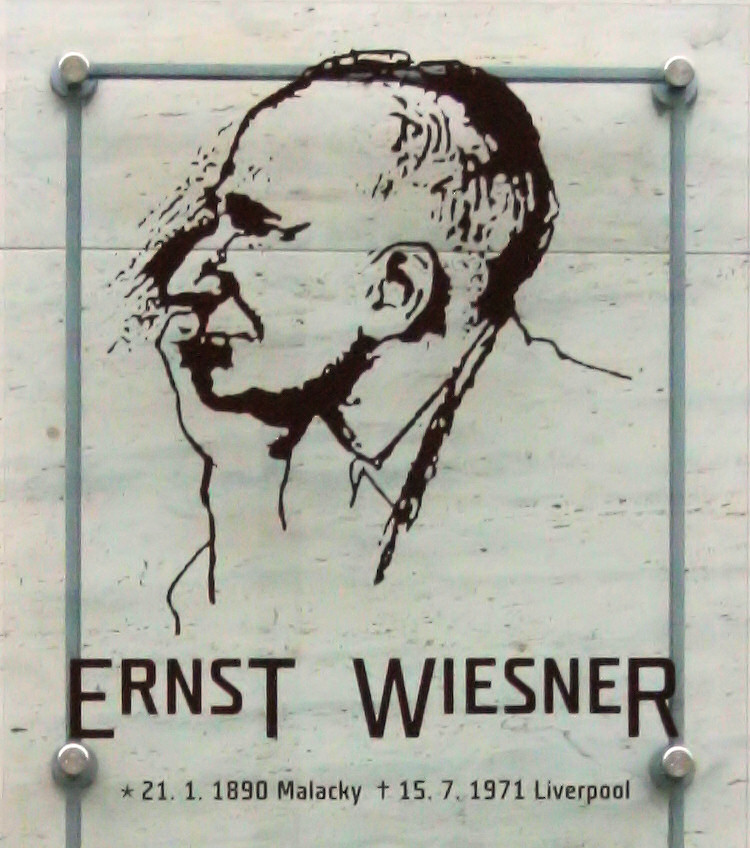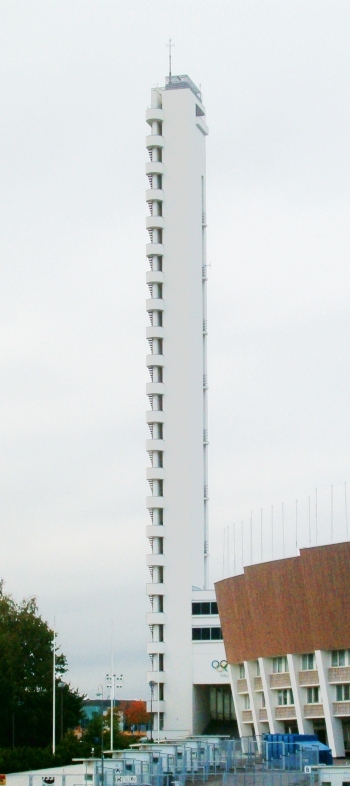|
Bohuslav Fuchs
Bohuslav Fuchs (24 March 1895 in Všechovice – 18 September 1972 in Brno) was a Czech modernist architect. Life and career A mason by education, Fuchs studied with Jan Kotěra at the Academy of Fine Arts in Prague between 1916 and 1919, and then later worked in Kotěra's atelier for two years. After 1922, Fuchs resided in Brno, where he first worked at the city construction office and then later (from 1929) in his own atelier. Between 1947 and 1958, Fuchs was a professor of architecture at Brno University of Technology. He participated in several professional associations abroad (e. g. British RIBA The Royal Institute of British Architects (RIBA) is a professional body for architects primarily in the United Kingdom, but also internationally, founded for the advancement of architecture under its royal charter granted in 1837, three supp ...). His projects, realized mainly in Brno, were predominantly influenced by functionalism. Major works in Brno * Zemanova k ... [...More Info...] [...Related Items...] OR: [Wikipedia] [Google] [Baidu] |
Hotel Avion, Brno (May 2008)
A hotel is an establishment that provides paid lodging on a short-term basis. Facilities provided inside a hotel room may range from a modest-quality mattress in a small room to large suites with bigger, higher-quality beds, a dresser, a refrigerator and other kitchen facilities, upholstered chairs, a flat screen television, and en-suite bathrooms. Small, lower-priced hotels may offer only the most basic guest services and facilities. Larger, higher-priced hotels may provide additional guest facilities such as a swimming pool, business centre (with computers, printers, and other office equipment), childcare, conference and event facilities, tennis or basketball courts, gymnasium, restaurants, day spa, and social function services. Hotel rooms are usually numbered (or named in some smaller hotels and B&Bs) to allow guests to identify their room. Some boutique, high-end hotels have custom decorated rooms. Some hotels offer meals as part of a room and board arrangement. In Jap ... [...More Info...] [...Related Items...] OR: [Wikipedia] [Google] [Baidu] |
Functionalist Architects
Functionalism may refer to: * Functionalism (architecture), the principle that architects should design a building based on the purpose of that building * Functionalism in international relations, a theory that arose during the inter-War period * Functional linguistics, a theoretical approach to the study of language * Functionalism (philosophy of mind), a theory of the mind in contemporary philosophy * Functionalism versus intentionalism, a historiographical debate about the origins of the Holocaust * Structural functionalism, a theoretical tradition within sociology and anthropology * Biological functionalism, an anthropological paradigm See also * Danish functional linguistics * Functional (other) * Functional psychology Functional psychology or functionalism refers to a psychological school of thought that was a direct outgrowth of Darwinian thinking which focuses attention on the utility and purpose of behavior that has been modified over years of human existen . ... [...More Info...] [...Related Items...] OR: [Wikipedia] [Google] [Baidu] |
Czech Architects
Czech may refer to: * Anything from or related to the Czech Republic, a country in Europe ** Czech language ** Czechs, the people of the area ** Czech culture ** Czech cuisine * One of three mythical brothers, Lech, Czech, and Rus' Places *Czech, Łódź Voivodeship, Poland *Czechville, Wisconsin, unincorporated community, United States People * Bronisław Czech (1908–1944), Polish sportsman and artist * Danuta Czech (1922–2004), Polish Holocaust historian * Hermann Czech (born 1936), Austrian architect * Mirosław Czech (born 1968), Polish politician and journalist of Ukrainian origin * Zbigniew Czech (born 1970), Polish diplomat See also * Čech, a surname * Czech lands * Czechoslovakia * List of Czechs * * * Czechoslovak (other) * Czech Republic (other) * Czechia (other) Czechia is the official short form name of the Czech Republic. Czechia may also refer to: * Historical Czech lands *Czechoslovakia (1918–1993) *Czech Socialist Republ ... [...More Info...] [...Related Items...] OR: [Wikipedia] [Google] [Baidu] |
People From The Margraviate Of Moravia
A person ( : people) is a being that has certain capacities or attributes such as reason, morality, consciousness or self-consciousness, and being a part of a culturally established form of social relations such as kinship, ownership of property, or legal responsibility. The defining features of personhood and, consequently, what makes a person count as a person, differ widely among cultures and contexts. In addition to the question of personhood, of what makes a being count as a person to begin with, there are further questions about personal identity and self: both about what makes any particular person that particular person instead of another, and about what makes a person at one time the same person as they were or will be at another time despite any intervening changes. The plural form "people" is often used to refer to an entire nation or ethnic group (as in "a people"), and this was the original meaning of the word; it subsequently acquired its use as a plural form of per ... [...More Info...] [...Related Items...] OR: [Wikipedia] [Google] [Baidu] |
People From Přerov District
A person ( : people) is a being that has certain capacities or attributes such as reason, morality, consciousness or self-consciousness, and being a part of a culturally established form of social relations such as kinship, ownership of property, or legal responsibility. The defining features of personhood and, consequently, what makes a person count as a person, differ widely among cultures and contexts. In addition to the question of personhood, of what makes a being count as a person to begin with, there are further questions about personal identity and self: both about what makes any particular person that particular person instead of another, and about what makes a person at one time the same person as they were or will be at another time despite any intervening changes. The plural form "people" is often used to refer to an entire nation or ethnic group (as in "a people"), and this was the original meaning of the word; it subsequently acquired its use as a plural form of per ... [...More Info...] [...Related Items...] OR: [Wikipedia] [Google] [Baidu] |
1972 Deaths
Year 197 ( CXCVII) was a common year starting on Saturday (link will display the full calendar) of the Julian calendar. At the time, it was known as the Year of the Consulship of Magius and Rufinus (or, less frequently, year 950 '' Ab urbe condita''). The denomination 197 for this year has been used since the early medieval period, when the Anno Domini calendar era became the prevalent method in Europe for naming years. Events By place Roman Empire * February 19 – Battle of Lugdunum: Emperor Septimius Severus defeats the self-proclaimed emperor Clodius Albinus at Lugdunum (modern Lyon). Albinus commits suicide; legionaries sack the town. * Septimius Severus returns to Rome and has about 30 of Albinus's supporters in the Senate executed. After his victory he declares himself the adopted son of the late Marcus Aurelius. * Septimius Severus forms new naval units, manning all the triremes in Italy with heavily armed troops for war in the East. His soldiers embark ... [...More Info...] [...Related Items...] OR: [Wikipedia] [Google] [Baidu] |
1895 Births
Events January–March * January 5 – Dreyfus affair: French officer Alfred Dreyfus is stripped of his army rank, and sentenced to life imprisonment on Devil's Island. * January 12 – The National Trust for Places of Historic Interest or Natural Beauty is founded in England by Octavia Hill, Robert Hunter and Canon Hardwicke Rawnsley. * January 13 – First Italo-Ethiopian War: Battle of Coatit – Italian forces defeat the Ethiopians. * January 17 – Félix Faure is elected President of the French Republic, after the resignation of Jean Casimir-Perier. * February 9 – Mintonette, later known as volleyball, is created by William G. Morgan at Holyoke, Massachusetts. * February 11 – The lowest ever UK temperature of is recorded at Braemar, in Aberdeenshire. This record is equalled in 1982, and again in 1995. * February 14 – Oscar Wilde's last play, the comedy ''The Importance of Being Earnest'', is first shown at St Jam ... [...More Info...] [...Related Items...] OR: [Wikipedia] [Google] [Baidu] |
Arnošt Wiesner
Ernst Wiesner, also known as Arnošt Wiesner (21 January 1890, in Malacky, Kingdom of Hungary, Austro-Hungarian Empire – 15 July 1971, in Liverpool) was a modernist architect, one of the foremost interwar period architects of Brno. His ancestors with German surnames Wiesner came from the area of modern Austria. From 1908 to 1913 Wiesner studied at the Technical College and the Academy of Arts (taught by B. Ohmann) in Vienna. After World War I he worked as an independent architect in the city of Brno, until 1939. Wiesner was a very active architect in the city between the World Wars. His work was greatly influenced by Adolf Loos and his pure constructions with their classicized balance and monumentality are amongst the best works to be constructed in Brno at that time. Afterwards Wiesner emigrated to Great Britain where he joins the foreign anti-fascist resistance. After World War II he stayed in Britain. During 1948-1950 he acted as a lecturer in the School of Architecture at ... [...More Info...] [...Related Items...] OR: [Wikipedia] [Google] [Baidu] |
Functionalism (architecture)
In architecture, functionalism is the principle that buildings should be designed based solely on their purpose and function. This principle is a matter of confusion and controversy within the profession, particularly in regard to modern architecture, as it is less self-evident than it first appears. The theoretical articulation of functionalism in buildings can be traced back to the Vitruvius, Vitruvian triad, where ''utilitas'' (variously translated as 'commodity', 'convenience', or 'utility') stands alongside ''firmitas'' (firmness) and ''venustas'' (beauty) as one of three classic goals of architecture. Functionalist views were typical of some Gothic Revival architecture, Gothic Revival architects. In particular, Augustus Welby Pugin wrote that "there should be no features about a building which are not necessary for convenience, construction, or propriety" and "all ornament should consist of enrichment of the essential construction of the building". In the wake of World War ... [...More Info...] [...Related Items...] OR: [Wikipedia] [Google] [Baidu] |
RIBA
The Royal Institute of British Architects (RIBA) is a professional body for architects primarily in the United Kingdom, but also internationally, founded for the advancement of architecture under its royal charter granted in 1837, three supplemental charters and a new charter granted in 1971. Founded as the Institute of British Architects in London in 1834, the RIBA retains a central London headquarters at 66 Portland Place as well as a network of regional offices. Its members played a leading part in promotion of architectural education in the United Kingdom; the RIBA Library, also established in 1834, is one of the three largest architectural libraries in the world and the largest in Europe. The RIBA also played a prominent role in the development of UK architects' registration bodies. The institute administers some of the oldest architectural awards in the world, including RIBA President's Medals Students Award, the Royal Gold Medal, and the Stirling Prize. It also manages ... [...More Info...] [...Related Items...] OR: [Wikipedia] [Google] [Baidu] |

_1938.jpg)



